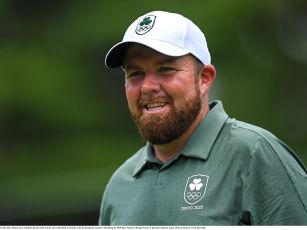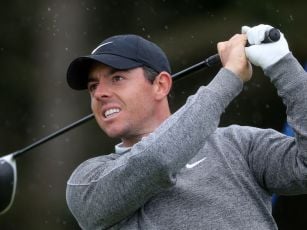Aisling Daly began her new voluntary role as International Athlete Ambassador for MMA’s international amateur governing body, IMMAF, earlier this month in Bulgaria at the European Open.
Following her forced retirement due to brain injury in February, 'The Bash' claimed that she would target a role within the organization in an exclusive interview with Newstalk.com.
The Dubliner spoke of her great respect for the amount of work the IMMAF team undertakes at the events, and how she believes her position will develop as she finds her footing with her new role.
"I’m very happy to get my foot in the door," said Daly. "I’m blown away by the effort of the IMMAF staff. They’re constantly on the go and I could tell very quickly that everyone involved with the organization is very passionate about the growth of the sport.
"It’s still early days and I’m learning about the organization, seeing how it works and trying to identify areas that I can help in.
"I see this as just the start of what I will eventually go on to do with IMMAF. I can see myself moving into a bigger role in the future.
"The fact that I have a working knowledge of the sport can really help everyone involved with the governing body. A lot of the people working with IMMAF come from different backgrounds, but no one has the same experience that I have as a professional MMA fighter.
"I think it’s a really good opportunity for me to promote the women’s side of the sport too."
Daly has experience in nearly every facet of the fight game. She’s been a fighter, a coach, she’s cornered her teammates, she has refereed fights, she’s judged fights and she has acted as a cut woman on a few occasions. Daly is also one of the driving forces behind safety criteria nationally in her role with Safe MMA Ireland.
Liaising between fighters and the governing body itself is a bit of departure from her other obligations, but Daly is confident that her fighting experiences give her an edge over others when it comes to dealing with competitors’ needs on fight week.
"If coaches or fighters have any issues with IMMAF or the way the event was run they can come to me and I’ll then go back to IMMAF and relay the problems they’ve had,” she explained.
"It could be something as simple as the fighters not having enough water in their dressing rooms or something massive like a problem with the cage or the equipment that they’re using.
"For fighters and coaches, it can be very difficult to explain some of these problems to people with no practical experience in the sport. I think they’re comfortable talking to me because I can immediately sympathize with their situation because I’ve probably been in similar binds over the years."
As a pioneer of the female sport, Daly is happy to try and help push more women towards amateur competition. There can be as few as two competitors in some of the IMMAF female divisions, and Daly has tasked herself with providing female athletes with a better competition experience, due to the expenses they incur to participate in the events.
"There are travel costs involved for the competitors and for the ladies it doesn’t make a lot of sense to travel all that way to another country and then potentially have one fight.
"I’m looking into ways we can improve the competitions for women who compete in shallower weight brackets. We’re looking at potentially having round-robins in some of the divisions so the women will have more opportunities to gain experience.
"For me, it will add a bit more prestige to the medals too. In some cases in the past people have fought once and come away with gold because of the lack of numbers in their division. At least with the round-robin in place you have to fight a number of times before you can win gold.
"Another thing we’re looking at is bringing in more weight divisions. There are a lot of big girls out there just can’t make 155 lbs."

Daly during her weigh-in at UFC Fight Night Dublin in 2015. Image: ©INPHO/Ryan Byrne
Daly also revealed that she would be looking for sponsors in each representative nation that could help with some of the expenses for female athletes. Through conversations she had with national teams in Bulgaria, the UFC veteran believes there isn’t a problem with women participating in the sport, but there is some reluctance when it comes to making the leap into competition.
"If you’re not training in an MMA gym, it’s very hard for me to target you to fight in an amateur MMA tournament.
"The thing I heard a lot from the teams in Bulgaria was that a lot of women are participating and training in the sport, but they just don’t really feel the need to compete as much. As I said earlier, for a lot of women, they aren’t competing because of the cost.
"I’m going to start seeking sponsorships in the various countries that have female athletes that are willing to compete, so we can get them over to these IMMAF competitions. Even it’s just to pay for a couple of flights or a hotel room, I think getting rid of that expense would push a lot more women towards competition.
"As an English speaker, I’ll be able to have a bit more of a hands-on approach when I’m dealing with companies in the UK and Ireland, but I’m going to need help from the various national federations when it comes to dealing with potential sponsors in different countries."
Daly noted that some male fighters might complain about females getting sponsorships, but the jiu-jitsu black belt feels the bursaries for women are needed to stimulate growth in the numbers competing in amateur MMA.
"I know some people will argue that it’s unfair to look for sponsorships for the ladies and not the men, but IMMAF has full brackets in every weight division for men. We just need to give the female sport that extra push in the beginning and then I’m sure it will go from strength to strength.
"Sweden have full government funding and they always a full roster of female fighters every year. I think that shows how far a little bit of help can go.
"Eventually I hope to see every nation with at least one female competitor. If they can achieve that, then the female athlete can begin to put on women’s workshops in their own country and hopefully, that will generate more interest in competition."

Aisling Daly celebrates her win over Ericka Almeida at UFC Fight Night Dublin in 2015. Image: ©INPHO/Cathal Noonan
Daly will look to open more lines of communication with female athletes so she can get a grasp of how they feel about a number of issues including national team selection criteria.
"I haven’t encountered some of the problems that girls are experiencing now in the sport. I’ve already been in contact with the female athletes. I’m going to get them to fill out questionnaires about everything and anything so I can see what areas need to be addressed.
"I know that there are definitely still some women that struggle to get settled in MMA gyms. I just want to find out generally how our competitors feel about the atmosphere in their gyms, their coaches and the selection process for the national amateur MMA teams.”
Two months ago, the former flyweight world champion told Newstalk.com that her biggest fear about retirement was not having "a purpose" in the sport. Thankfully, Daly believes that her new role has filled the void that was left when she hung up her gloves.
"I think the new role has fulfilled the void that’s been left by my retirement from competition. As a fighter, you never really have to think for yourself. Every day is planned from start to finish, especially when you’re in a training camp.
"I’ve always loved coaching and it’s great that I’ve been able to continue to do that, but I still felt a little bit on the outside when it came to competition.
"With my IMMAF role, I really feel like I can help a lot. Being there to give the competitors the best possible experience they can get gives me a great sense of purpose too."
Download the brand new OffTheBall App in the Play Store & App Store right now! We've got you covered!
Subscribe to OffTheBall's YouTube channel for more videos, like us on Facebook or follow us on Twitter for the latest sporting news and content.








